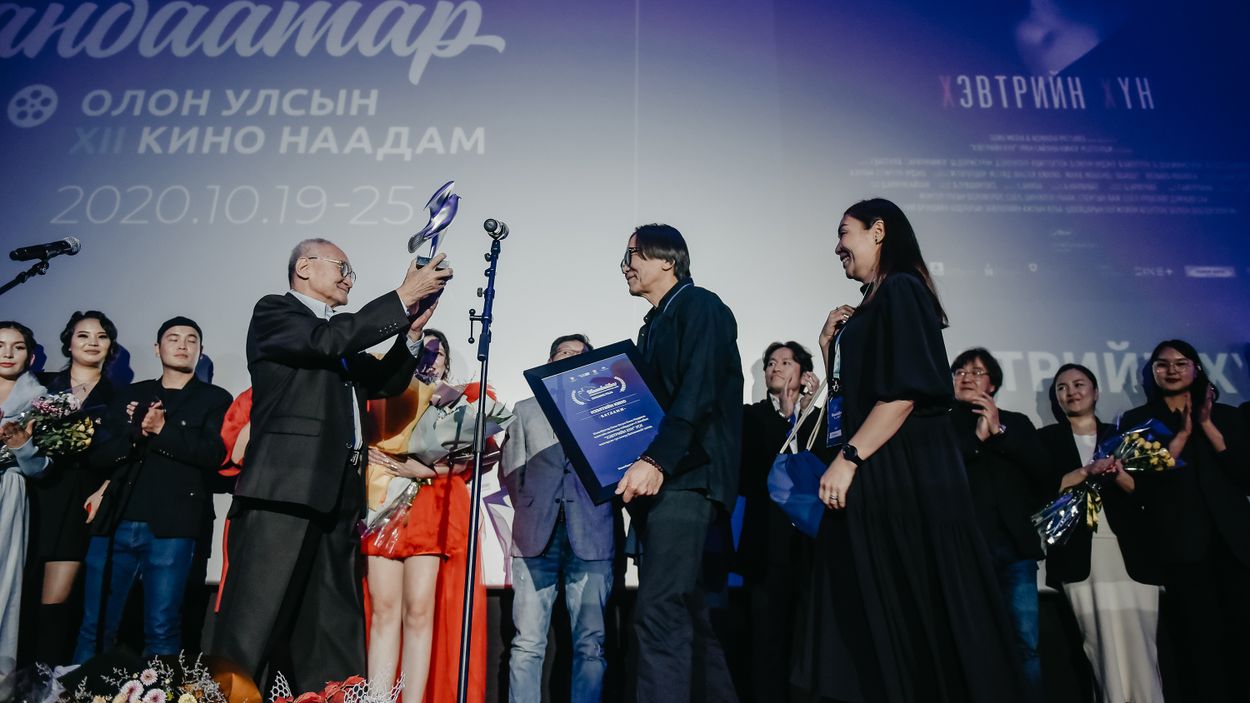Read also the main article, take a break in the history of Mongolian cinema
Interview with Uran Sainbileg
We must learn how to write! In summer 2020, Uran Sainbileg conquered the Open Doors Lab, winning the Rotterdam Lab Award, which in 2021 will take her for a training workshop together with a delegation of producers from the international scene. She is a passionate producer, with one eye on commercial cinema and the other on auteur cinema, and she points straight to the heart of what she thinks is the great gap to fill for Mongolian cinema: «We need freshness in writing - Uran attacks directly - We are completely lacking and now that something is being done at an institutional level for culture and to actively support local filmmakers, we must be able to bring here, from abroad, some professionals who can teach us the value of the script. We need freshness in general, a breath of experience that makes our authors and our local professionals grow.»
Something is moving in that very direction.
«After the government supported cinema for decades, promoted it, made it grow by building an important film history spanning 80 years, in the 1990s everything went out in an instant and cinema was no longer on anyone’s mind, completely disrupting the flow of funding. Today independent cinema is trying to return to that training system that made our cinema great in the first decades of the 1900s. Last summer, the government took important steps towards a return to support for this artform and it would be the first time in 30 years.»
We need freshness in general, a breath of experience that makes our authors and our local professionals grow.
Can independent cinema and commercial cinema coexist?
«Yes, all my projects were commercial films; if you have good ones you can earn well, the important thing is to aim for quality. We could run fewer films on our screens, aiming for higher quality. Today I have the impression that people are confused between what ‘cinema’ is and what any ‘content’ is, which I can see at any time, on demand. It's true; today our community of arthouse filmmakers is really small, just as the audience for auteur films is small. However, every year at UBIFF we see excellent arthouse films arrive, followed by an increasingly interested audience. This is encouraging and should push us to shoot more.»
Is the UBIFF therefore describing a change?
«The last three editions have been very good, the Festival is growing, the audience is growing and there is more and more local interest in what happens in those days. Professionals come, get involved and ask to see more movies. The horizon is widening, we have more and more opportunities to explore other filmmaking styles in order to grow. What is missing is a modern cinematic education and the risk is that of creating works that are only a bad copy of the reality of the country.»
 Ulanbataar International Film Festival 2020
Ulanbataar International Film Festival 2020
Except for celebrating Genghis Khan...
«We could do that better too, although it's not the kind of film I'm interested in producing. But it is a boundless pool of stories, we should know how to investigate and explore it better. If on the one hand only a historian can know him thoroughly, on the other hand only a director can advise you on how to bring him to the screen, with the right script. Having said that, there are many stories to tell, let's not limit ourselves to Genghis Khan.»
Which stories?
«It’s a difficult topic to deal with, but if on the one hand we have a huge tradition and ancient history, on the other there is our modern history, a very interesting reality to capture, grasp and tell; a reality that exists today, but in twenty years perhaps it will no longer exist. Could it be of interest to the international audience? I don't know; to understand it we would need more external eyes, advice, someone to help us explore this horizon.»
Open Doors, for example?
«Personally, Open Doors has made an essential contribution to my training. It made me understand what a producer really is, gave me an idea of which direction to take to move forward and suggested what the true meaning of being a producer is. It was the essential beginning of a process that is still in progress and that I no longer want to stop.»